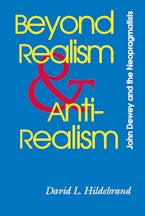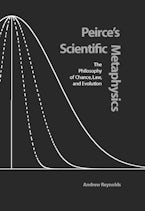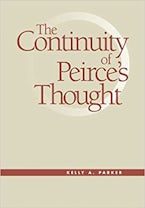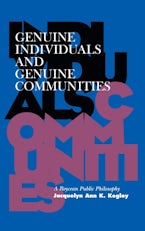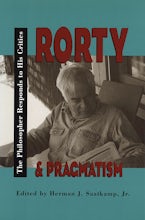- Home
- Elements of Knowledge

Elements of Knowledge
Pragmatism, Logic, and Inquiry
Elements of Knowledge is an engaging introductory text, effectively and imaginatively designed to bring a working understanding and appreciation of the fundamental tenets and methods of the American school of philosophy known as pragmatism, as articulated by its founder C. S. Peirce, to undergraduates and general readers. It presents and explains the basic pragmatic tools that are the common thread in our acquisition and development of knowledge, whether in an academic, vocational, or professional setting, or in life at large. Pragmatism guides, without dictating, examinations of ordinary human experience, creative learning in all fields, and progress in academic disciplines.
This book is intended for use by both general readers and students, particularly those in introductory logic or related philosophy courses. It will also fit well in the design of many "core curriculum" or "general education" course requirements. It is ultimately meant to be accessible and beneficial to anyone seeking a clearer understanding of the unifying principles for acquiring and assessing the soundness of all knowledge.
Arthur Franklin Stewart is director and editor of the Center for Philosophical Studies at Lamar University in Beaumont, Texas. He is an active author and editor who has published several articles and contributed to several previous books on C. S. Peirce.
Arthur Stewart has written a truly innovative approach to critical thinking that takes Peirce's "pragmaticist" view of logic as its starting point and engages issues in the living world of reasoning. This immediately distinguishes it from the legion of logic texts that opt for the canonical approach deriving from Frege and Russell. The result is a highly successful text for the student and a fascinating alternative for the teacher.
--Thomas M. Alexander, Southern Illinois University
Elements of Knowledge is the only book I have found that meets a long-present need. It introduces the reader to the major methods, tools, and insights needed for learning to learn. The examples it uses, drawn from daily life and a wide variety of academic fields, are apt and understandable. It is historically sound, clearly written, and interesting.
--Joseph D. Stamey, McMurry University
An exciting introduction to an area of philosophy that is often treated in a dull and unimaginative way. Stewart has captured the complexities and richness of the human mind in its quest for truth.
--James Muyskens, University System of Georgia
This is an outstanding little book . . . [which] should be useful both in introductory philosophy and reasoning classes and for the general reader interested in an introduction to pragmatism.
--Peirce Project Newsletter

